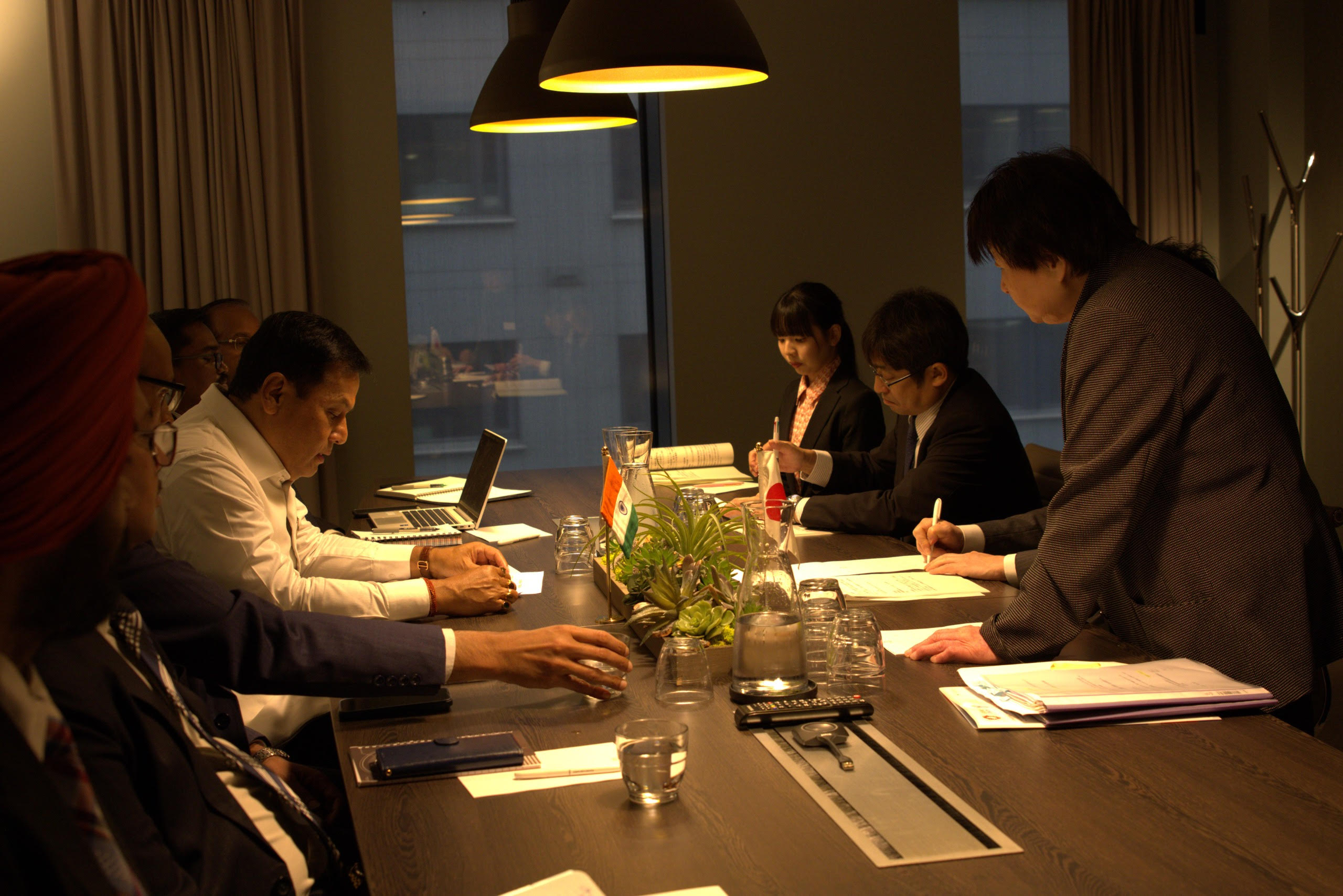In a significant step toward deepening maritime cooperation, Union Minister of Ports, Shipping & Waterways, Sarbananda Sonowal on Monday held a bilateral meeting with Japan’s Vice Minister for International Affairs, Terada Yoshimichi, in Oslo, Norway. The discussions, aimed at fostering stronger maritime relations between India and Japan, covered key areas such as shipbuilding, port digitization, green port initiatives, maritime training, and the transformation of India’s Andaman & Nicobar and Lakshadweep islands into Smart Islands.
The ministers explored opportunities for Japanese investment in Indian shipyards, with a focus on collaborations involving leading Japanese companies like Imabari Shipbuilding, JMUC, Kanagawa Dockyard, and Mitsubishi Heavy Industries. Sonowal highlighted India’s interest in joint ventures with these firms, particularly for greenfield projects like Imabari Shipbuilding’s initiative in Andhra Pradesh. He also invited Japan’s maritime giants—NYK Line, MOL, and K Line—to explore investment opportunities in India’s burgeoning maritime sector.
“Japan’s expertise in shipbuilding and ship repair is globally recognized, and we see immense potential for collaboration,” said Sonowal. “Our strong bilateral ties and India’s growing maritime industry present a unique opportunity for Japanese shipyards to invest in India, while collaboration on port digitization and green port initiatives will enhance the sustainability of our maritime logistics network.”
The meeting also emphasized sustainable technologies and disaster-resilient infrastructure, with both sides discussing the development of Andaman & Nicobar and Lakshadweep as Smart Islands. Leveraging Japan’s expertise in island development, the collaboration aims to integrate renewable energy, smart mobility systems, and digital infrastructure while prioritizing ecological conservation and regional maritime security.
Vice Minister Terada expressed Japan’s keen interest in expanding maritime collaboration, particularly in shipbuilding and seafarer training. “India and Japan share an intimate relationship, and we are very interested in the maritime sector,” he said, noting positive discussions on mutual cooperation. Japan, already a key partner in India’s railway infrastructure, is now looking to strengthen its presence in the maritime domain.
A key focus of the talks was the upskilling and employment of Indian seafarers in Japan. With over 154,000 trained seafarers, India is well-positioned to support Japan’s maritime workforce. Sonowal proposed structured training programs by Japanese maritime leaders to enhance the skills of Indian engineers and workers, further solidifying bilateral ties.
The ministers also discussed India’s ambitious National Maritime Heritage Museum (NMHC) at Lothal, Gujarat, aimed at showcasing the country’s rich maritime legacy. Sonowal invited Japan to partner in this project and expressed hope for an early MoU to formalize the collaboration. Additionally, he extended an invitation to Vice Minister Terada for the India Maritime Week 2025, to be held in Mumbai from October 27-31, 2025, to explore further opportunities for investment and innovation in the maritime sector.
The talks underscored the deep Indo-Japanese partnership, rooted in shared values of democracy, freedom, and cultural ties. Both sides reaffirmed their commitment to regional maritime security and economic integration through frameworks like the Quad and the India-Japan-Australia Supply Chain Resilience Initiative (SCRI). Sonowal highlighted India’s alignment with Japan-led initiatives such as the International Solar Alliance (ISA), Coalition for Disaster Resilient Infrastructure (CDRI), and Leadership Group for Industry Transition (LeadIT).
“Under the visionary leadership of Prime Minister Narendra Modi, India is transforming its maritime sector through initiatives like Maritime India Vision 2030 and Maritime Amrit Kaal Vision 2047,” said Sonowal. “With Japan’s partnership, we aim to scale new heights, targeting five trillion yen (₹3.2 lakh crore) in investments by 2027 for a sustainable and mutually beneficial future.”










